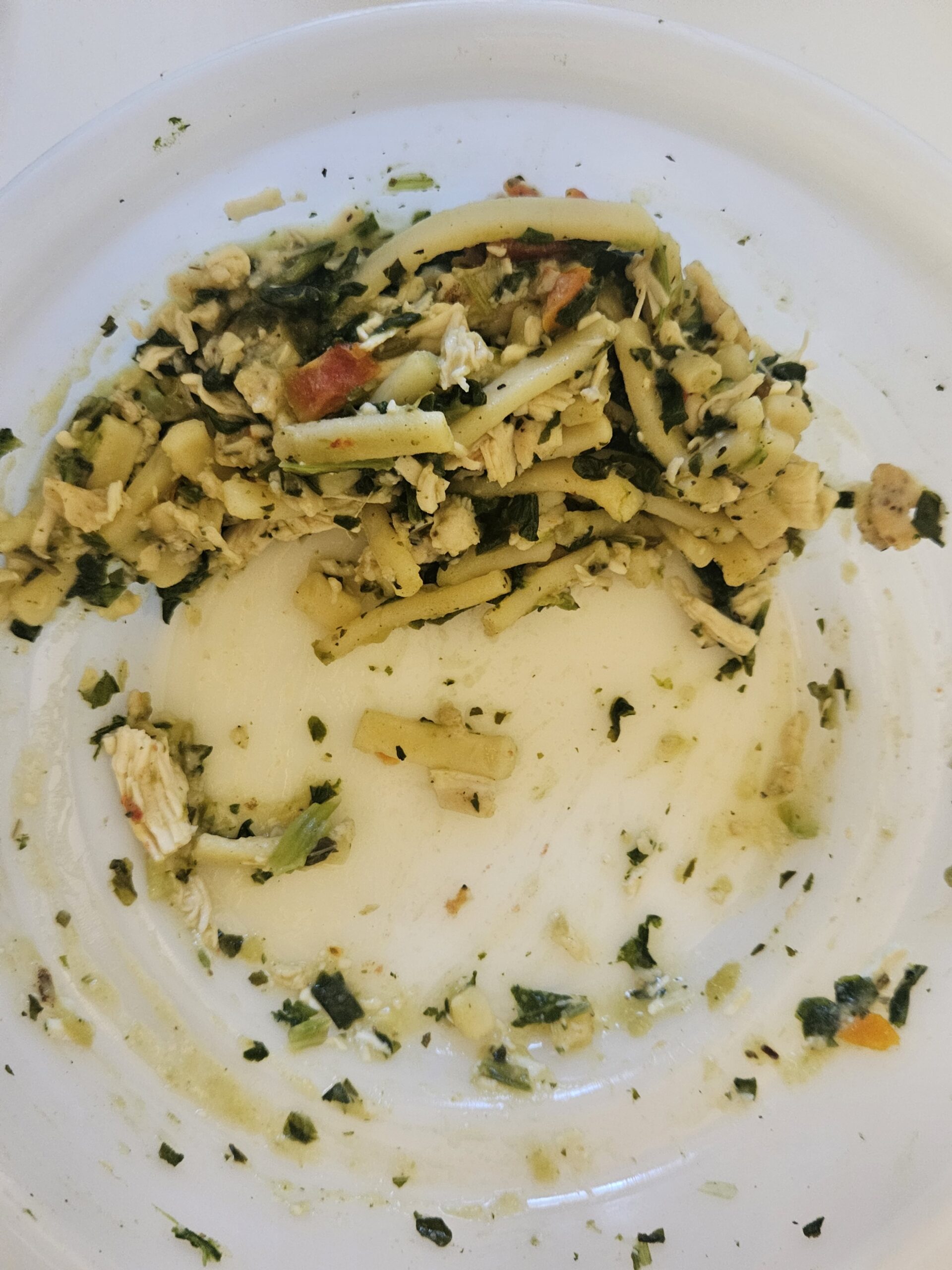Remember: I’m not a medical provider (anymore) and never was an obesity specialist. I’m sharing my experiences and knowledge from studying, listening, asking questions, and learning answers from those that know… professionals and regular folks like you.
As I consciously move through my new tirzepatide, Mounjaro… a GLP-1/glucagon-like peptide-1 and GIP/glucose-dependent insulinotropic polypeptide combination) journey, I’m reminded of my eating requirements after the Roux-en-Y Gastric Bypass I had in 2001.
- Protein first
- Vegetables second
- Crap food last if there is room, but beware of sugars and dairy (possible dumping syndrome)
- No liquids during meals
- Don’t drink your calories
- DO drink more low-calorie protein until you can eat more, but drink between meals
- Eat slowly
- Chew thoroughly
- Stop at the first sign on fullness -or-
- Finish your meal in 20 minutes
RNY vs. Mounjaro (and Semaglutides):
Food Rules
The rules start out the same: Protein first. From there, people on medications seem to be left on their own.
I’m thinking the RNY rules apply to tirzepatide (Mounjaro), semaglutides (Ozempic/Wegovy), and dulaglutide (Trulicity) and am confused why they aren’t being touted as such.
From what I can tell, those who eat fast or eat a lot or eat crapfood get sick. They are getting stomach aches, nausea, vomiting, and feeling horrible. Those that have had Duodenal Switch or RNY Weight Loss Surgeries seem to be doing better with the injections. Is it because of the altered anatomy? Or is it because we remember the rules of eating in the beginning and simply do not overeat. If we overate post-op, we had the exact same symptoms happen. Almost verbatim.
Cheating the System
I’ve watched videos where people, seemingly unknowingly, are cheating the system of eating. Then they wonder why they are not losing weight.
One woman talked about how she would eat a bite and then put her fork down for ten minutes and come back and repeat that until everything on her plate was gone. When I mentioned eating slowly in the above rules, doing whatever you can in order to eat a full meal was not what I meant. Nor was it what the Bariatric Surgeon’s instructions were.
When making your plate, put 1/4 of what you usually would eat on it. If, after eating it all and it is under 20 minutes and you are still hungry, take a couple of spoonfuls more. Then stop.
Eating in shifts does not allow the tool (the medications) to do their job. Your goal is not to eat more, or the same, but to eat less.
Freaking Out
It can be really weird to see a plate with so little on it. We, who have a lifetime of having obesity as our main illness, have mental blocks about smaller portions.
It means deprivation.
But now, on these medications, we are not being deprived. We are eating normally. Most of us have never eaten normally, even on diets. That was not normal. That was deprivation. If you are like the majority of us on these meds, your “food noise” is gone or the volume lowered to a tolerable level. With the food noise gone, we can listen to our bodies and not that incessantly hungry Being that lived inside our bodies for far too long.
Healing Ourselves
While dieting required “lifestyle changes” that sucked big time and were all but impossible, now you get to make different kinds of lifestyle choices that will correct the imbalances and illnesses your body is harboring or hiding. And this time, you are not white knuckling it. You have a team of chemicals to assist your shifts of thought and your actions of habit. Now you get to think differently and change your habits which, for many of us, is virtually painless.
Eat smaller portions. Eat slowly, but not in shifts. Don’t drink with meals because that flushes the food through the stomach faster and you are hungry quicker. Protein first.
Learning how to eat… which is for the first time for so many of us… will serve us and our lives now, later, and always.

photo by Barb Herrera

